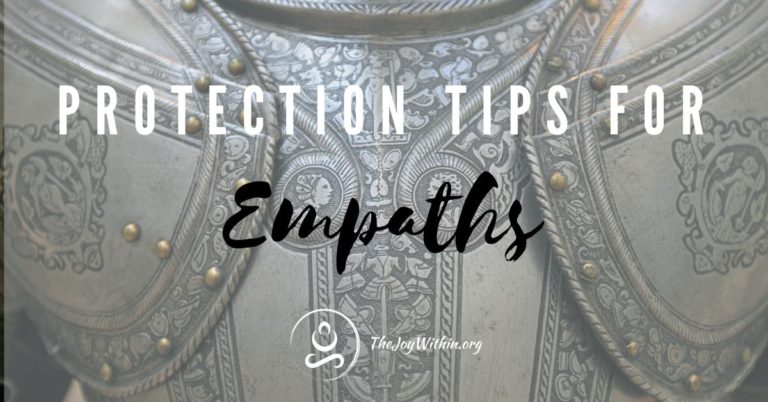We all innately have the capacity for compassion. Closely related to compassion is empathy. This feeling goes deeper than compassion, which is sitting and sympathizing with someone who is suffering. Empathy is placing yourself fully in the other person’s shoes and feeling what that person feels.
What Is An Empath?
Being an empath is very different than just having a lot of compassion. Empaths are highly sensitive people who can directly absorb energy, sensations, feelings, and even thoughts from their surroundings. It is commonly associated with being a healer or a lightworker.
First off, as a foundation, everyone experiences empathy to a certain extent. Have you ever seen the videos of people wiping out while climbing on top of a table or attempting a skateboard stunt?

When you saw them fall, hard, did you ever cringe because you could almost physically feel how the impact must have felt to them? This is the basis of what an empath experiences when someone is suffering around them.
Except, an empath doesn’t just visualize it for a second. They really feel the totality of the sufferer’s experience. An empath may go on to even physically perceive the sensations of someone suffering around them.
Learning to hear your own inner voice and to follow it is incredibly important for an empath.
Our environment has a powerful impact on us. Empaths are similar to a porous sponge and will drink up their surroundings and absorb its energy.
This layer can be especially confusing for empaths as they can feel someone’s suffering as their own and they can absorb it without consciously knowing the other person is suffering. This means it can be hard for empaths to discern if what they are feeling is theirs or others.
Although empaths do not only absorb suffering they also can absorb joy, mannerisms, interests, and belief systems. Although absorbing another person’s suffering tends to be the most prominent trait as it presents the most problems.
“The company you keep is important. If you leave your coat in a room where people are smoking, pretty soon it will smell of smoke. If you leave it outside in the garden, later on, when you bring it indoors, it will carry with it the fragrance of fresh air and flowers. Such is the case with the mind. Your garment of thoughts absorbs the vibrations of those with whom you mix.”
Swami Kriyananda
How Does Being An Empath Work?
It is believed that similar to a sponge what causes empaths to absorb energy the way they do is that they do not filter the same way others do. This lack of filtering causes empaths to be more sensitive to the external.
Empaths can have a hard time saying no and setting boundaries which leaves them to take on the problems of others both physically and emotionally. This is often at the expense of their own wellbeing.
Although empaths can work to fine-tune their sensitivity and set healthy boundaries. This can then be used as a skill in work such as Reiki, meditation, and energy healing.
Learning how to deal with negative people is also incredibly important for empaths.
How To Tell If Your An Empath
If you are not fully sure if you are an empath we have compiled a list of traits of an empath so that you can use them to identify yourself. You can apply these statements to yourself to see some aspects of what it’s like being an empath.
- You are sensitive to loud noises, crowded spaces, or highly energetic events
- You feel drained after spending time with others
- You have a gut instinct to tell when people are lying
- You have been labeled overly emotional or too sensitive
- You avoid conflict or find it unbearable
- You have a hard time setting boundaries
- You find yourself feeling similar emotions to a person you spent a lot of time with
- Your environment impacts you especially strong
- You are highly intuitive
- You experience sensory or emotional overload
Resources For Empaths
As an empath it is important you prioritize caring for yourself. Similar to an emergency on an airplane, you need to place your air mask on before assisting others.
Some ways you can take care of yourself are through building a meditation practice see our 5 tips for beginning your practice. Or dive into shadow work and learn why you are uncomfortable setting boundaries and begin to apply them in ways that agree with your self-care.




